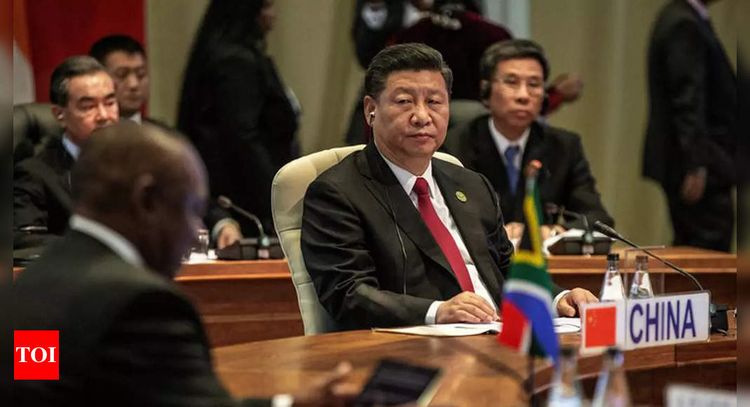'There will be a reckoning': Why part of China's economic rise was a mirage, not miracle - Times of India

BEIJING: The grand economic success story of China, which was once considered a remarkable achievement under President Xi Jinping's bold reform agenda, now seems like an illusion rather than a marvel. These reforms were intended to transform China into a service and consumption-driven free market economy similar to the Western model by 2020. Nevertheless, as per a report by Reuters, many of these reforms never came into effect, resulting in China's economy remaining heavily dependent on obsolete policies.
Furthermore, an unwavering dependence on outdated economic models has not only worsened China's enormous debt problems but also amplified concerns regarding excessive industrial capacity.
The inability to reform the world's second-biggest economy has sparked notable worries and doubt regarding the economic prospects of the country.
While certain specialists anticipate a gradual shift towards a state of stagnation similar to what Japan went through, there is also an upcoming possibility of a more severe economic decline. William Hurst, who holds the Chong Hua Professorship of Chinese Development at the University of Cambridge, stated to Reuters that things tend to deteriorate slowly until they ultimately crumble. He added that China is confronted with a noteworthy danger of experiencing a financial crisis in the near future.
So, the bubble burst due to a combination of factors that have been building up for many years. China experienced a major shift from a planned economy to becoming a strong industrial nation in the 1980s. They invested a lot in factories and infrastructure to support their development. However, when the global financial crisis hit in 2008-2009, China had already made significant investments that met their needs for development.
Throughout the years, China witnessed noteworthy growth in its economy in terms of numbers, but this development was coupled with an enormous surge in total debt, which increased by a factor of nine. In order to maintain this growth, China opted to heavily invest in infrastructure and real estate, causing a diversion of resources from household consumption.
Due to these circumstances, the desire for goods and services from consumers in China was not as strong when compared to other nations. Additionally, the availability of jobs tended to be concentrated in industries like construction and manufacturing, which didn't interest recent college graduates very much. This particular policy approach caused the property sector in China to become overly inflated, making up a large portion of the economy. Consequently, local governments relied heavily on debt to sustain this sector. The decline in the property market worsened the situation even more, as it reduced the need for construction materials and had negative effects on the overall economy.
Additionally, the Covid-19 outbreak exacerbated preexisting problems, hampering the economy's progress in spite of China's attempts to resume normal operations. According to Max Zenglein, the chief economist at MERICS (a research organization focusing on China), we are currently facing unfamiliar challenges and uncertainties.
At present, China stands at a crucial point while attempting to traverse a delicate economic course. The imminent danger of a substantial downfall in the real estate market that can adversely affect the financial sector emphasizes the pressing nature of this situation. Experts have identified three possible routes for China's future trajectory.
The initial step involves a rapid and painful emergency that includes getting rid of debts, addressing excessive industrial capacity, and bursting the housing market bubble. The second option is a much slower and lengthier process in which China gradually resolves these imbalances, albeit at the expense of slower economic growth. The third possibility, although seen as unlikely, involves actively transitioning to a consumer-driven model through structural reforms that may cause short-term difficulties but offer the potential for a quicker and stronger recovery. Hurst mentioned that while this is the opportune moment for China to make an economic shift, there is also a significant fear of triggering an economic crisis. (With information from Reuters)









































